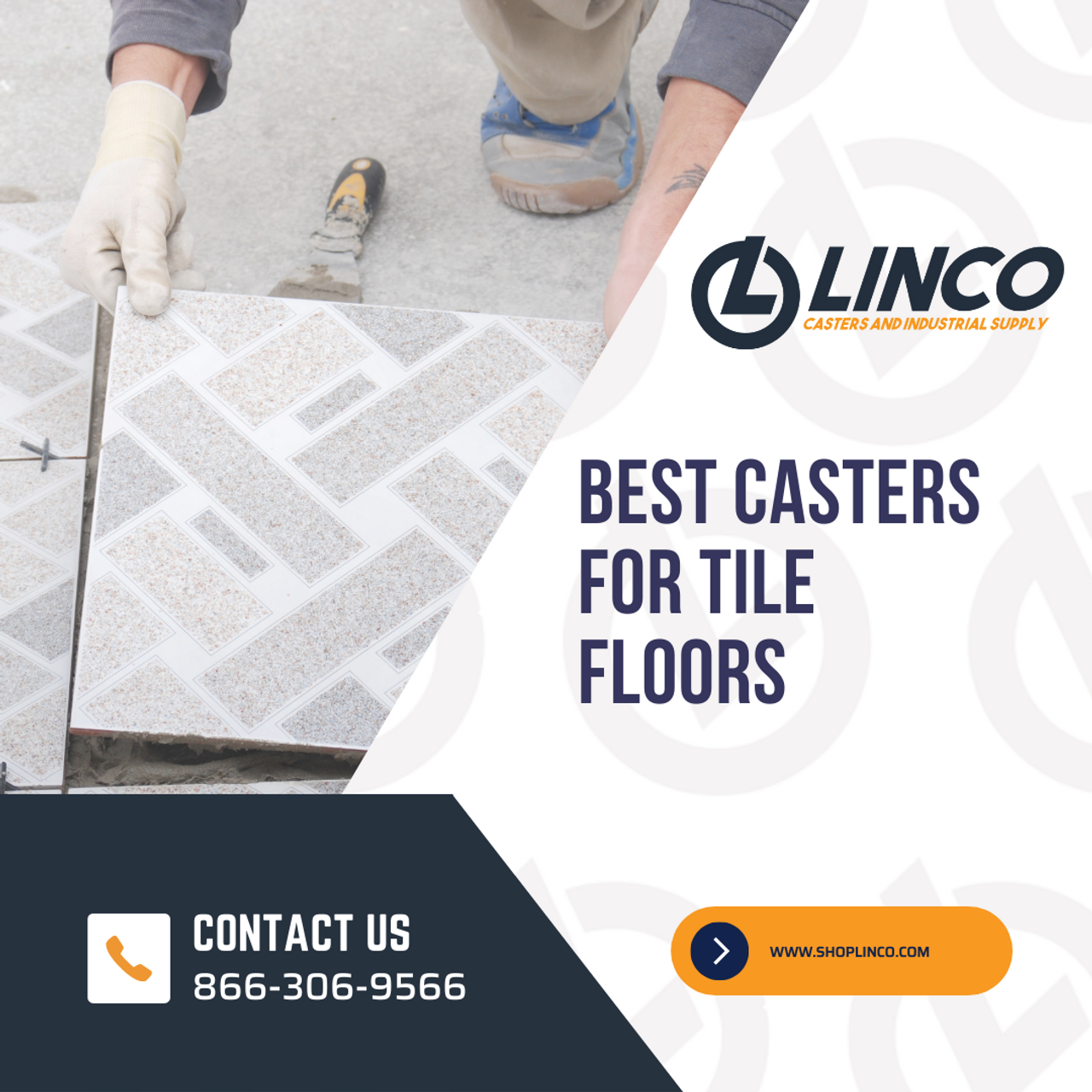There is no limit to the applications of caster wheels. Numerous businesses use caster wheels to help facilitate faster workflows, greater efficiency, and safer workplaces. The wide range of caster applications equates to a similarly wide selection of caster types.
If you want to enjoy the full benefits of using casters, it is crucial to choose the right ones for the job. Casters that are used in an office, medical, or kitchen environment where tile floors are common may not be the same ones that work best on dirt or carpet flooring.
Let LINCO guide you on what you need to look for to get the best casters for tile floors.
Finding the Right Tile Floor Casters
While there is no “one size fits all” solution for casters, there are guidelines we can follow to make the selection easier. The rule of thumb when it comes to choosing casters based on flooring types is simple — the harder the floor, the softer the caster.
Similar to how the same magnet poles repel one another, hard casters on hard flooring work against each other. Using hard casters — such as cast iron, aluminum, or even hard nylon — on hard tile flooring can cause scratches. When combined with heavy loads and frequent or constant use, it is not uncommon for tiles to crack under the stress. In general, hard casters result in greater and faster wear and tear of the tiles.
In comparison, tile floor casters made from softer materials complement hard tile flooring. If you want the best casters for tile floors, look for ones with wheels made from the following:
- Thermoplastic rubber (TPR)
- Polyurethane
- Soft rubber
- Polyolefine
- Polypropylene
These materials generally have a smoother roll or easy rollability on tile floors. They are lightweight, long-wearing, and offer floor protection. They are much less likely to compromise or damage the tiles. Softer materials also have the added benefit of making less noise.
Additionally, these materials generally have high resistance to liquids, including oil and chemicals. This makes them ideal for wet applications, such as in tiled kitchens and medical facilities where water, oil, and other spills are also common.
Casters To Avoid Using on Tile Flooring
The most evident indicator of using the wrong caster wheels for tile flooring is a thin coating of fine dust or powdery residue on the casters. This residue is caused by hard caster wheels grinding up the surface of the tiles. As a result, the flooring can become uneven or significantly damaged over time.
If you catch sight of such dust or powder residue on your caster wheels, that is a sign to switch caster wheels to prevent further damage to the floors.
Classic caster designs used in office furnishings and equipment, such as metal tread balls or nylon wheels, can cause such damage. Additionally, nylon wheels may also leave hard-to-clean and unsightly marks on the floor due.
When using these types of casters at home or in the office, it is best to limit their use over short pile carpets or protective floor mats.
Shop the Best Casters for Tile Floors
As long as you use casters with wheels made of softer materials like TPR, soft rubber, or polyurethane, you can feel confident about your choice. Our online store offers a wide selection of premium-quality tile floor casters, both from the LINCO brand and other caster manufacturers.
Below are three of our highly recommended LINCO tile floor casters:
- LINCO Heavy Duty Office Chair Casters 3″: If your office chairs have metal tread balls or nylon wheels, this set of LINCO swivel casters is a great alternative. These are made from polyurethane and able to fit most chairs, with a total load capacity of 600 lbs.
- LINCO Heavy Duty Chrome Food Service Swivel Casters 3″: For tile floor casters meant for food service, this set of flat wheel-type casters made with TPR offers easy rollability and high floor protection. These casters also work well on wood and carpeted floors.
- LINCO Replacement Swivel Casters with Threaded Stem 3″: These threaded stem-type casters are a perfect fit for workbenches, trollies, dollies, carts, and DIY furniture customization. The wheels are also made from TPR and come with locking or brake capability.
If none of these three casters catch your eye or suit your specific needs, you can browse the LINCO online shop catalog for more options.
Our LINCO specialists can help you choose the best caster wheels to use on tile floors. For more assistance, give us a call at (866) 306-9566 or leave a message on our Contact Page.

